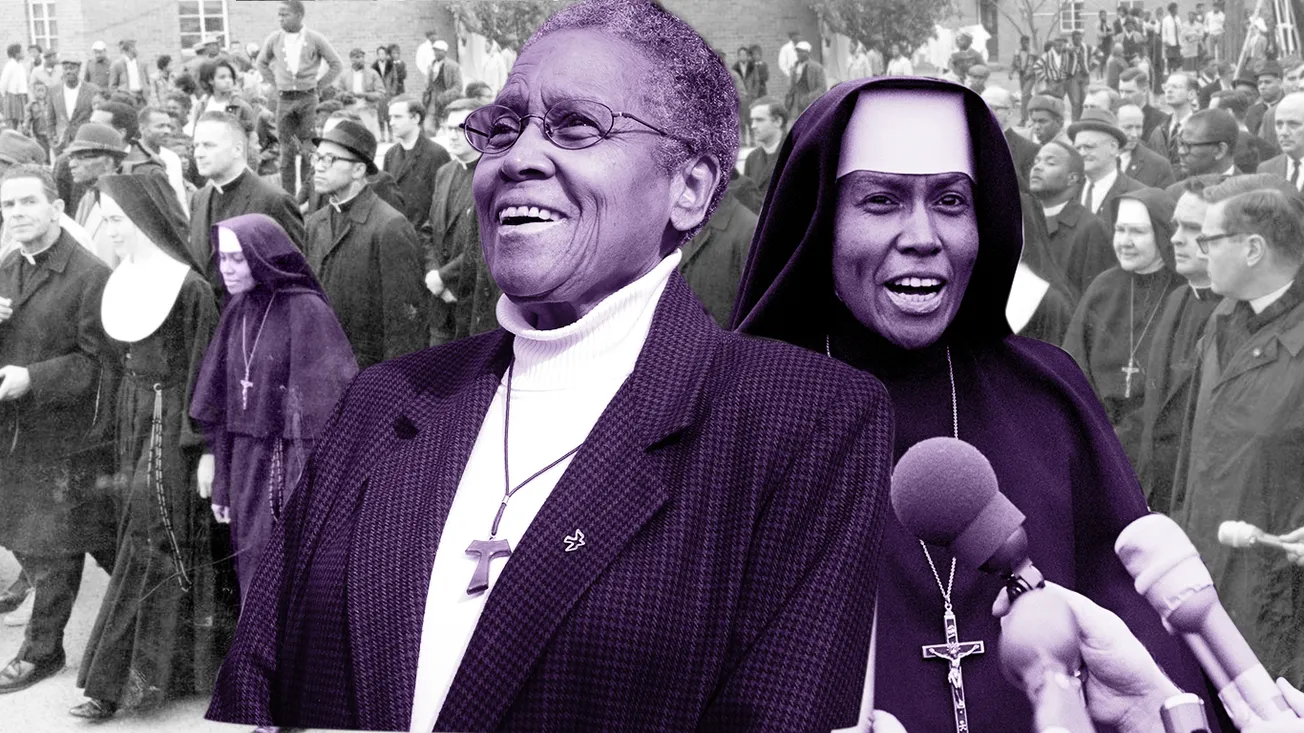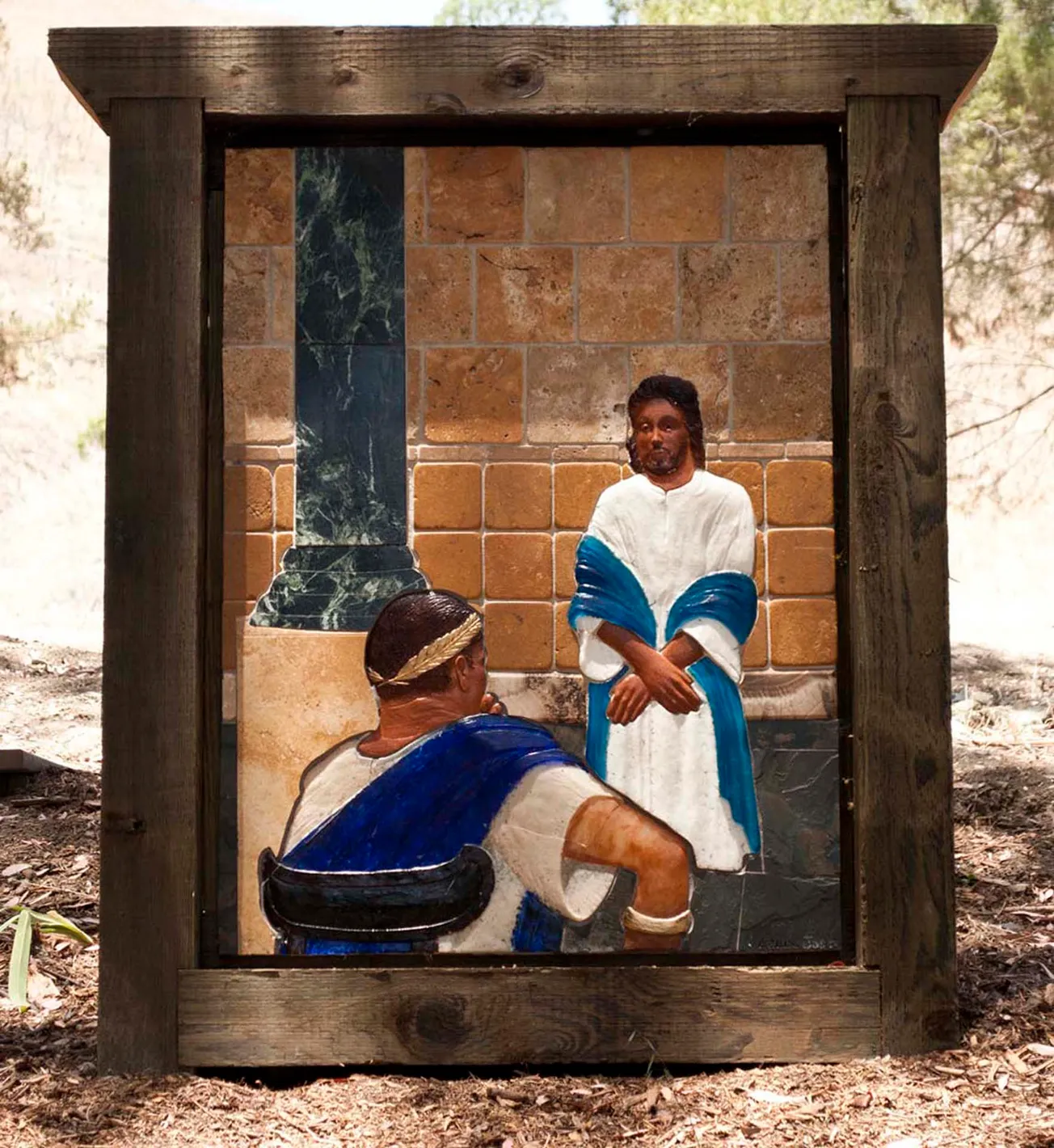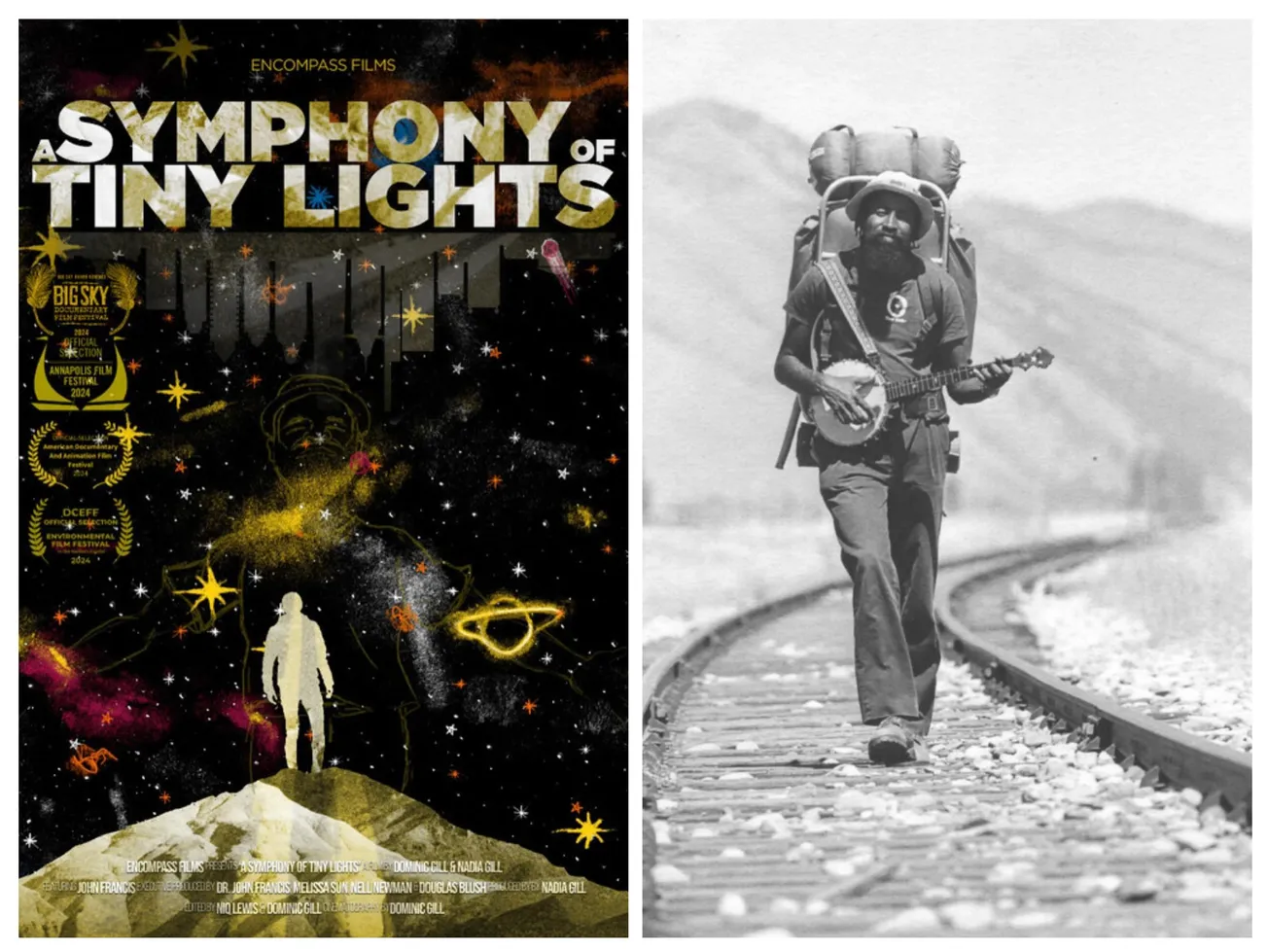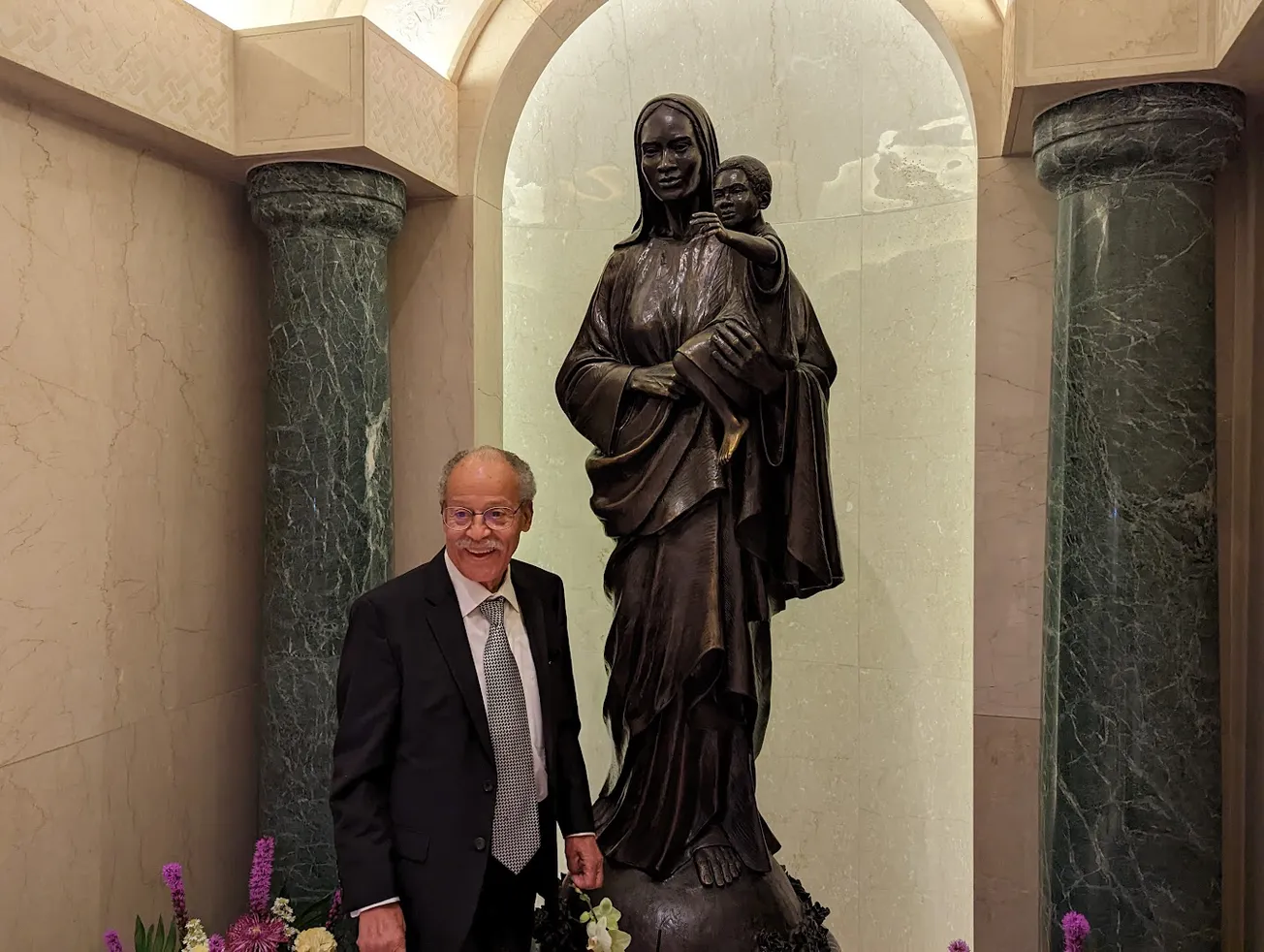Last year, I wrote a piece that got the attention of Bishop Robert Barron, then an auxiliary bishop in Los Angeles, concerning his erasure of the role of Catholics in Black activism for social justice. Therein, I asked:
“Will Bishop Barron wake up and strengthen the prophetic witness of the Church in the work of racial justice? Or will he spend this critical time helping others sleep through this Great Revolution of racial justice and—like Rip Van Winkle—find that he is out of step with the Church as it works to build the kingdom in the 21st century?”
If the past week is any indication, we can see what the answer is: Barron continues his erasure of Black Catholic voices and evangelization to make sure we know we’re not welcome. The bishop’s personal evangelistic actions continue to betray a bias in favor of White men, even at the expense of the safety of women, perhaps especially Black women.
Though denying any direct personal responsibility, Barron was recently alleged to have expressed a dismissive attitude towards women that accused a WoF employee—Barron’s close friend—of treating them abusively. One would think that after being criticized for being dismissive towards victims of abuse, he would have done some soul searching that results in greater sensitivity to the issue. Instead, it appears that the great sleep continues.
This past week, great fanfare was made over an interview of Shia LaBeouf done by Barron, discussing the actor’s conversion to Catholicism during the making of a new film in which he portrays Padre Pio. Barely mentioned during that interview was the lawsuit filed by LaBeouf’s ex-girlfriend, the singer and actress FKA twigs, alleging that he abused her (including by infecting her with an STD).
Rather, we were subjected to the amplification of his voice, that of a man who still obviously has very troubling ideas of masculinity and the role of women. The interview also exposed the troubling role Catholic clergy play and have played in amplifying a culture of misogyny, abuse, and racism.
While Venerable Fulton Sheen famously stated that we as Catholics comprise a Church for sinners, there is no excuse for an institution with a track record of institutionalized abuse to amplify and platform abusers—especially those still struggling with the attitudes and beliefs that led to that abuse. Likewise, it is scandalous that a Church that has done so much to exclude Black people amplified an abuser that attacked a Black Catholic woman, fueling an environment that pushes out not only her but all vulnerable people that see themselves in her experience.
FKA twigs, raised in Cheltenham, England, is the daughter of a White British/Spanish mother and a Black Jamaican father. It is reported that she was raised Catholic, also receiving a scholarship to attend a Catholic high school in her hometown. In what appears to be a pattern in the Church, this sole Black girl in a Catholic institution was bullied to the point of being forced out.
Despite this harsh treatment by White Catholics and White Catholic institutions, FKA twigs has infused her music with the Catholic spirituality and culture of her upbringing, including Gregorian chant and religious themes:
But when you give yourself away,
it always hurts too much,
so you pray to get it back.
Only God can give you that.
(“Good to Love”, FKA twigs)
Indeed, she even dedicated a whole album to Mary Magdalene and the way the narratives of women are twisted to fit the views and biases of men. When she completed the album, she gave thanks at a chapel dedicated to St. Mary Magdalene in Glastonbury. Her imagination is a Black Catholic imagination, her voice a Black Catholic voice in modern times. And like so many of these voices, the Church has facilitated violence against her.
She needed an academic scholarship to go to Catholic school—it was not an opportunity freely offered. She was bullied out of a Catholic school by its White students, with no protection from the institution. And now, a Catholic bishop has amplified the misogynistic voice and presence of her alleged abuser. For his part, LaBeouf does not even dispute that he hurt her, even if he does dispute some of the nature of the allegations.
The interview carried with it many troubling misogynistic and racist tropes: the erasure of Black women and women generally, viewing the suffering of women as an instrument of the sanctification or salvation of men, as well as negative conceptions of certain Asian cultures.
You see Barron chuckling along as LaBeouf discusses his perceived misconceptions of Jesus as a “soft” and “Buddhist” type character who is “feminized.” This was shared as an idea his Catholic spiritual advisers “helped” him dispel, in exchange for a “masculine” Christ. Negatively feminizing Asian men is a common racist trope in the world of American White Supremacy. Moreover, viewing Buddhism—the origin of kung fu, among other amazing things—as “weak” sends a clear message, amplifying a misogyny that equates femininity with weakness.
LaBeouf also mentions in the interview that he was given a John Wayne vision of Catholicism. At a certain point, it starts to become obvious that this particular vision, which has been sold to this man, validates his feelings of male superiority, a worldview that deeply affected the safety and security of FKA twigs.
Apparently, LaBeouf was deeply impacted by a book by Br Jim Townsend, a man who killed his pregnant wife and later in life became a Capuchin Franciscan. This is key, because LaBeouf goes so far as to tell Barron that FKA twigs “saved [his] life.” This raised for me the specter of Alessandro Serenelli, the twenty-year-old man who killed the preteen St Maria Goretti for resisting his attempts to rape her. He later became a Capuchin brother, too, and also credits St Maria for saving him after what he considered a “crime of passion.”
How long will the suffering men inflict on women in the Catholic Church be viewed as redemptive?
One wonders to what degree these men might feel that the women themselves excited their destructive and misogynistic behavior. After all, Padre Pio is frequently used today to further purity-culture narratives that disproportionately burden women with responsibility for sexual morality. A common story shared is Pio’s rule that women coming to Confession had to wear skirts at least 8 inches below the knee—and ones that they owned, not just borrowed—otherwise, they would be denied the sacrament. The role this kind of thinking plays in encouraging misogyny and abuse in the Church today needs to be addressed.
LaBeouf has every right to pursue Christ. I have no objection, in the abstract, to him having proper pastoral care while walking his journey within the Church. But we must look at the reality. Who is guiding him? What values are they reinforcing in the name of the Catholic religion?
Most importantly, what is being done to ensure that his spiritual journey does not make our Church less safe for women, Black people, Asian people, and all vulnerable people, given his views on race, religion, and masculinity? What we saw with Barron was an almost hour-and-a-half exhibition showing that the answer is “Nothing.” LaBeouf was either affirmed or unchallenged on the various expressions of racist misogyny during the interview. He will now be amplified and promoted in Catholic communities as an orthodox interpreter of a Catholic saint—who himself had problematic ideas about the dignity of women and femininity.
The onlookers who are upset that people are raising these questions want to frame the issue as an unwillingness to welcome sinners. However, that is not the point at all. Framing the issue this way taps into the same toxic impulse that fueled the Church’s sex abuse crisis in the first place: it erases the reality of the victims and the vulnerable.
The real question, which Barron seems to be answering in the negative with his actions, is this: Is FKA twigs welcome and safe in her Church? Can women, girls, and other vulnerable people know that they can go to any parish in this country and be safe? Will Asian people and Black people know that their presence will not be erased or that they will not be subject to racist tropes and stereotypes?
Shia LaBeouf did not decide on his own to give himself this platform to share his imperfect faith journey. Bishop Barron, elected last fall by his fellow US prelates as chairman of the Committee on Laity, Marriage, Family Life and Youth by a vote of 140 to 103, decided to amplify LaBeouf’s voice and provide him a place of prominence in FKA twigs’ Church—a home that is supposed to be for all, including Black women.
I think of my daughters, and my God-given obligation to contribute to their safety, thriving, and well-being. That’s my role as a Black man, a Catholic, and a father. How can I, in good conscience, raise them in an institution that does this to FKA twigs? What happens when the next future Capuchin comes for them?
Gunnar Gundersen is an attorney in Newport Beach, CA. He serves in his parish council and choir, is a published essayist, and regularly lectures on natural law and the American Founding. He is also the first Ordinariate member of the Knights of Peter Claver. Follow him on Twitter at @GBGundersen.








